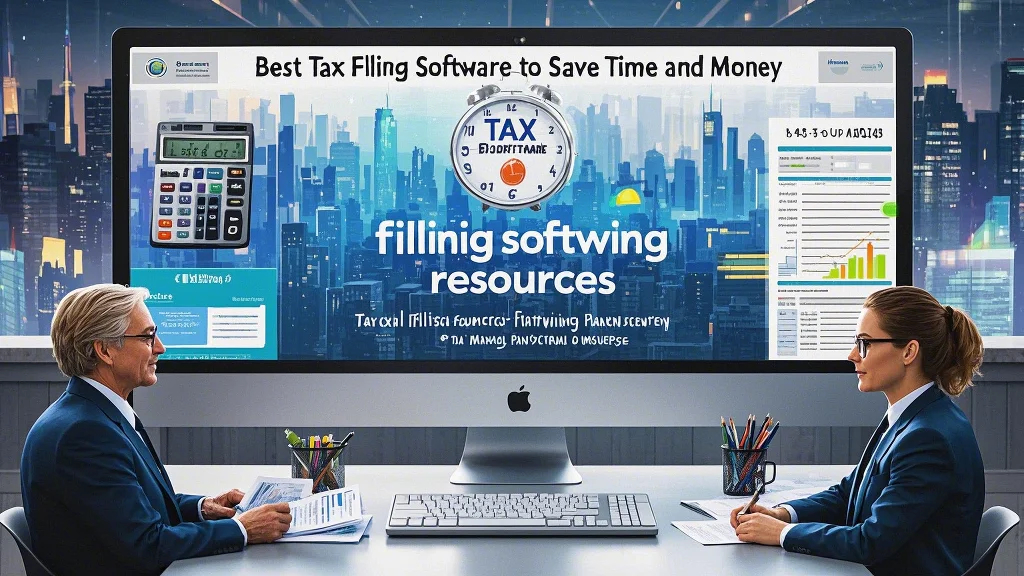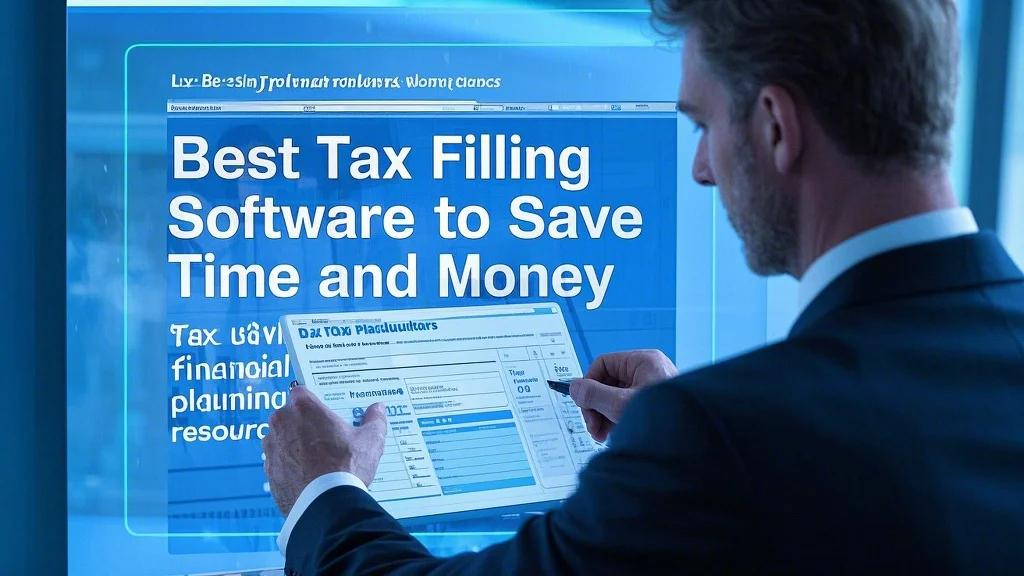Understanding the Value of Tax Filing Software
In today’s complex tax environment, tax filing software has become an essential tool for individuals and businesses alike. These sophisticated platforms offer comprehensive solutions for preparing and filing tax returns, ensuring accuracy and maximizing potential refunds. The best tax software provides intuitive interfaces, step-by-step guidance, and access to up-to-date tax laws, making the filing process more manageable and less stressful for users of all experience levels.
One of the key advantages of modern tax filing software is its ability to handle various tax situations, from simple W-2 filings to complex investment income and business deductions. Many platforms now offer features like automatic import of financial data, error checking, and audit risk assessment, providing users with greater confidence in their tax filings. Additionally, the integration of e-filing capabilities and direct deposit options streamlines the entire process, reducing the time and effort required to complete and submit tax returns.
Exploring the Benefits of Tax Savings Calculators
Beyond basic tax preparation, tax savings calculators have become invaluable tools for optimizing tax strategies throughout the year. These tools allow users to estimate their tax liabilities, identify potential deductions and credits, and explore various tax-saving strategies. The best tax calculators offer comprehensive features that consider multiple income sources, deductions, and tax brackets, providing users with a clearer picture of their tax situation.
One of the most valuable aspects of tax savings calculators is their ability to model different scenarios and help users make informed decisions about their finances. For example, users can explore the tax implications of contributing to retirement accounts, making charitable donations, or adjusting their withholding allowances. Many calculators also provide explanations of complex tax concepts and strategies, helping users better understand how to minimize their tax burden legally and effectively.

Leveraging Financial Planning Resources for Tax Efficiency
Effective tax management is an integral part of overall financial planning, and financial planning resources play a crucial role in achieving tax efficiency. These resources help individuals and businesses align their financial decisions with tax-saving strategies, creating a comprehensive approach to wealth management. The best financial planning tools offer features like tax projection analysis, retirement planning integration, and investment tax optimization.
One of the key benefits of using financial planning resources for tax purposes is the ability to take a long-term view of tax strategies. Many tools now offer multi-year projections that help users understand how current financial decisions might impact future tax liabilities. Additionally, the integration of educational resources and expert advice can help users make more informed decisions about complex tax matters, such as estate planning and business tax strategies.
Utilizing Best Financial Tools for Comprehensive Tax Management
In the realm of personal and business finance, best financial tools have become essential for effective tax management. These comprehensive platforms offer a wide range of features, from expense tracking and budgeting to investment management and tax planning. The best financial tools provide integrated solutions that help users maintain organized financial records throughout the year, making tax preparation more efficient and accurate.
One of the standout features of modern financial tools is their ability to categorize expenses and income in ways that align with tax reporting requirements. Many platforms now offer automatic tax categorization, receipt storage, and year-end tax summary reports. Additionally, the integration of tax planning features allows users to estimate their tax liabilities throughout the year and make adjustments to their withholding or estimated tax payments as needed.
Implementing Personal Finance Management Software for Tax Readiness
Maintaining organized financial records is crucial for smooth tax preparation, and personal finance management software has become an essential tool for achieving tax readiness. These platforms help users track income, expenses, and investments throughout the year, providing a comprehensive view of their financial situation. The best personal finance tools offer features like automatic bank account synchronization, receipt scanning, and tax-related expense tracking.
One of the key benefits of using personal finance management software for tax purposes is the ability to maintain accurate and up-to-date financial records. Many platforms now offer tax-specific features like charitable donation tracking, business expense categorization, and mileage logging. Additionally, the integration of tax preparation software allows for seamless transfer of financial data, reducing the time and effort required to complete tax returns accurately.
Building a Comprehensive Tax Strategy
Creating an effective tax strategy requires more than just using individual tools; it necessitates a holistic approach that integrates various financial management solutions. This involves understanding how different tools work together to provide a comprehensive view of your tax situation and using them to make informed decisions throughout the year. Regular reviews and adjustments to your tax strategy are essential for staying on track and adapting to changing financial circumstances.
Another important aspect of tax planning is staying informed about new tools and technologies that can enhance your tax management capabilities. The financial technology landscape is constantly evolving, and staying ahead of the curve can provide significant advantages in managing your taxes more effectively. By leveraging the best tax tools available and continuously refining your tax strategy, you can achieve greater financial efficiency and security in the long term.
